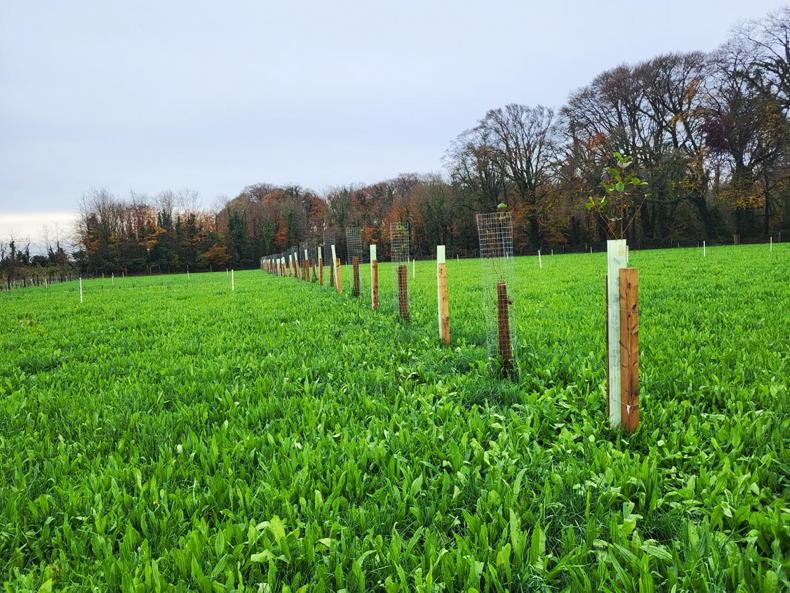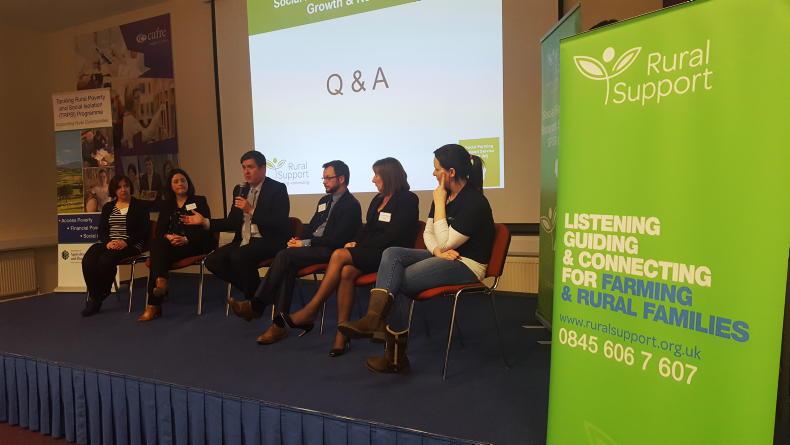There is growing interest among NI farmers in the wider level of the Environmental Farming Scheme (EFS), reports from local farmers and DAERA staff suggest.
The online application process for the third tranche of the scheme closes on 20 September 2019. A fourth and final tranche is also planned for next year.
Previous tranches of EFS wider-level have not been oversubscribed and all eligible applicants received a letter of offer from DAERA.
In the latest tranche, scheme agreements lasting five years will begin from 1 January 2020 and most work will need to be completed and claimed by 1 June 2020.
At an EFS information event in Loughgall last week, farmers were told that incomplete records detailing when and where work was completed was the most common issue during inspections in previous tranches.
A template for EFS field records is available on the DAERA website, however a farmer can keep a different format of records, provided it contains all the relevant information.
Payment rates for each option in this tranche are the same as the first two tranches of EFS wider-level. Participants in previous tranches of the scheme cannot apply again, even if they did not exceed the maximum agreement value in their original agreement.
Under EFS wider-level, an applicant’s agreement value (total payment over five years) must be at least £2,500 and the upper limit is £12,500 for farms up to 25ha in size. After that, the upper limit increases by £26.67/ha up to a maximum agreement value of £20,000.
Interest
Anecdotal evidence suggests that the increased interest in EFS wider-level stems from farmers seeing options such as hedge laying with two fences (£16.04/m) and watercourse stabilisation with fencing (£6/m) as a way of erecting good-quality fencing at little or no cost.
There are 19 options in EFS wider-level and each applicant is able to select a maximum of four different options.
In addition, some measures have optional bolt-ons called additional non-productive investments. For example, stock proof fencing (£6/m) can be added on to establishing agro-forestry (£1,637/ha in year one, plus £65/ha/year in years two to five).
There are four additional standalone options which can also be added on to agreements. These options cover areas such as organic farming and establishing native woodlands.
EFS wider-level participants are required to undertake training in environmental management before they receive payments from DAERA. At last week’s event in Loughgall, farmers were told that this involves participants watching online videos at home in their own time, before answering a set of questions afterwards.
Read more
EFS wider-level open to applications
Final tranche of EFS to open in 2020
There is growing interest among NI farmers in the wider level of the Environmental Farming Scheme (EFS), reports from local farmers and DAERA staff suggest.
The online application process for the third tranche of the scheme closes on 20 September 2019. A fourth and final tranche is also planned for next year.
Previous tranches of EFS wider-level have not been oversubscribed and all eligible applicants received a letter of offer from DAERA.
In the latest tranche, scheme agreements lasting five years will begin from 1 January 2020 and most work will need to be completed and claimed by 1 June 2020.
At an EFS information event in Loughgall last week, farmers were told that incomplete records detailing when and where work was completed was the most common issue during inspections in previous tranches.
A template for EFS field records is available on the DAERA website, however a farmer can keep a different format of records, provided it contains all the relevant information.
Payment rates for each option in this tranche are the same as the first two tranches of EFS wider-level. Participants in previous tranches of the scheme cannot apply again, even if they did not exceed the maximum agreement value in their original agreement.
Under EFS wider-level, an applicant’s agreement value (total payment over five years) must be at least £2,500 and the upper limit is £12,500 for farms up to 25ha in size. After that, the upper limit increases by £26.67/ha up to a maximum agreement value of £20,000.
Interest
Anecdotal evidence suggests that the increased interest in EFS wider-level stems from farmers seeing options such as hedge laying with two fences (£16.04/m) and watercourse stabilisation with fencing (£6/m) as a way of erecting good-quality fencing at little or no cost.
There are 19 options in EFS wider-level and each applicant is able to select a maximum of four different options.
In addition, some measures have optional bolt-ons called additional non-productive investments. For example, stock proof fencing (£6/m) can be added on to establishing agro-forestry (£1,637/ha in year one, plus £65/ha/year in years two to five).
There are four additional standalone options which can also be added on to agreements. These options cover areas such as organic farming and establishing native woodlands.
EFS wider-level participants are required to undertake training in environmental management before they receive payments from DAERA. At last week’s event in Loughgall, farmers were told that this involves participants watching online videos at home in their own time, before answering a set of questions afterwards.
Read more
EFS wider-level open to applications
Final tranche of EFS to open in 2020










SHARING OPTIONS